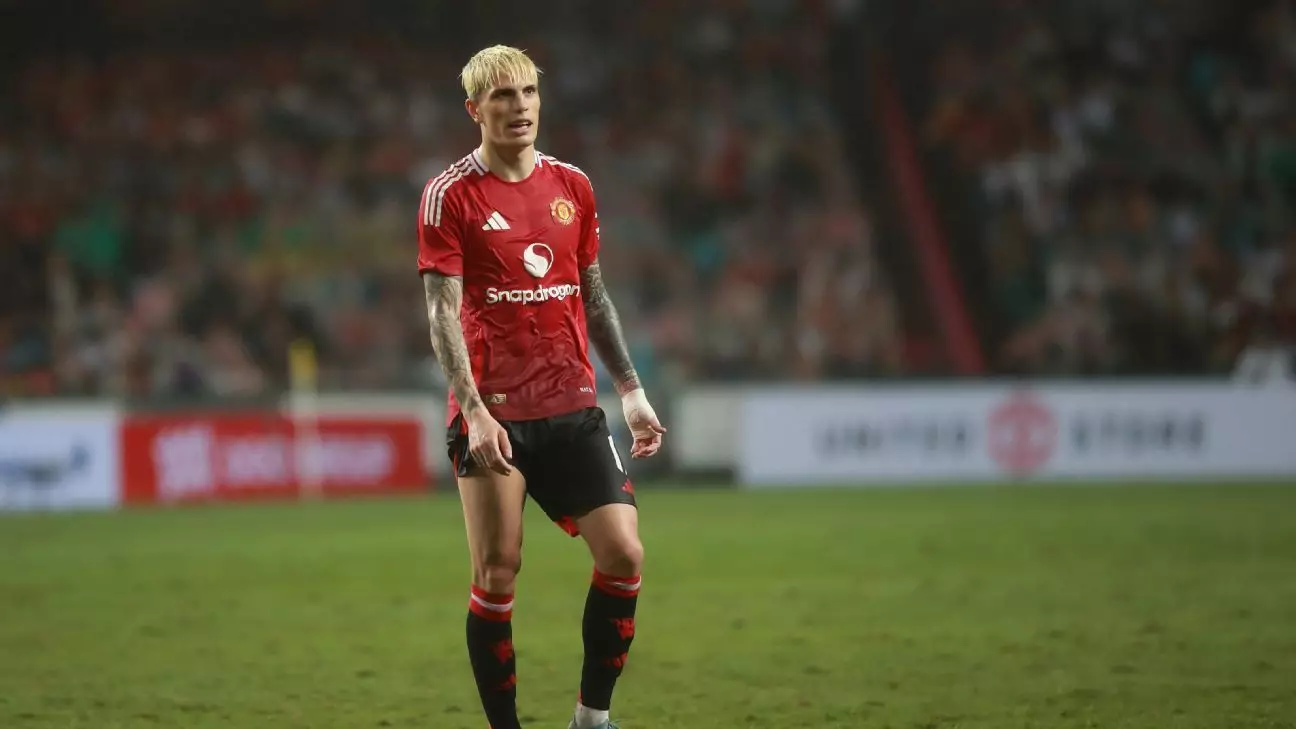In the fluid and unpredictable landscape of modern football, innovation often arises from those willing to challenge traditional practices. Ruben Amorim’s stance at Manchester United exemplifies this mindset. Rather than perpetuate a rigid squad hierarchy, he advocates for flexibility, openness, and patience. By insisting he will reintegrate players like Alejandro Garnacho if suitable transfer deals are not finalized, Amorim emphasizes the importance of nurturing talent and maintaining squad unity over hasty decisions. This approach underscores a belief that success does not solely depend on acquiring new players but on intelligently managing those already at the club’s disposal.
Amorim’s decision to leave key outcasts—Garnacho, Antony, Sancho, and Malacia—at home during the US tour demonstrates his confidence in the team’s core potential. Instead of succumbing to pressures of immediate results, he opts for strategic reserve. This patience could serve as a masterstroke if it encourages some players to reaffirm their commitment or motivate others to rise to the challenge. It is a bold stand, reflecting leadership that values long-term stability over short-term fixes.
The Power Dynamics of Transfers and Player Motivation
One of the most critical themes in this situation is the delicate balance between transfer market activity and player morale. Amorim’s transparent communication reveals an understanding that footballers are highly motivated by the prospect of playing time, especially with the World Cup looming. His acknowledgment that players must fight for their spots to remain competitive highlights a pragmatic recognition of individual ambitions. This candidness might serve as a catalyst, prompting players to elevate their performance or reconsider their priorities.
Furthermore, Amorim’s confidence that the club’s upper management has clear valuation thresholds indicates a calculated approach to transfers. His assertion that players who do not reach the specified deal will remain at Manchester United demonstrates strategic patience. It reflects a broader philosophy that team cohesion and internal competition are more valuable than rushed signings. This stance, although risky, could foster a culture of resilience and professionalism—qualities that are essential for sustained success.
A Club at a Crossroads: Rebuilding with Confidence
Manchester United finds itself at an intriguing crossroads. The club’s ongoing pursuit of a reliable striker, linked with names like Ollie Watkins, reveals a desire for immediate impact. Yet, Amorim’s willingness to start the season without a new No. 9 signals a confident optimism in the squad’s existing talents. The mention of Rasmus Hojlund and Josh Zirkzee exemplifies a thoughtful internal development plan, emphasizing chemistry and adaptability.
The arrival of new signings, Matheus Cunha and Bryan Mbeumo, injects fresh energy and versatility into the squad. Amorim’s emphasis on their choice to join underscores a shared desire to build something meaningful, rather than merely chase headlines. This mindset, prioritizing harmony and strategic growth, can be powerful in cultivating a resilient team identity that withstands the pressures of a competitive season.
Persistence and Patience as Foundations for Success
Amorim’s narrative champions a philosophy rooted in patience and strategic endurance. His belief that transfers might still surprise the club suggests a resilient outlook that refuses to succumb to desperation, even amid external speculation. This resilience is vital for a club like Manchester United, which needs to rebuild confidence and cohesion after a turbulent recent history.
Moreover, his openness to working with existing players instead of solely chasing reinforcements indicates faith in internal talent. This approach not only fosters a culture of responsibility but also incentivizes players to elevate their performance to secure their spots. It’s a subtle but powerful message: success depends not just on star signings but on the collective effort and mental resilience of the squad.
In the end, Amorim’s strategy reflects a broader truth about modern football: sustainable success is built on a foundation of resilience, patience, and strategic clarity. For Manchester United, embracing this philosophy could be the key to emerging stronger, more united, and better equipped to face the challenges ahead.

